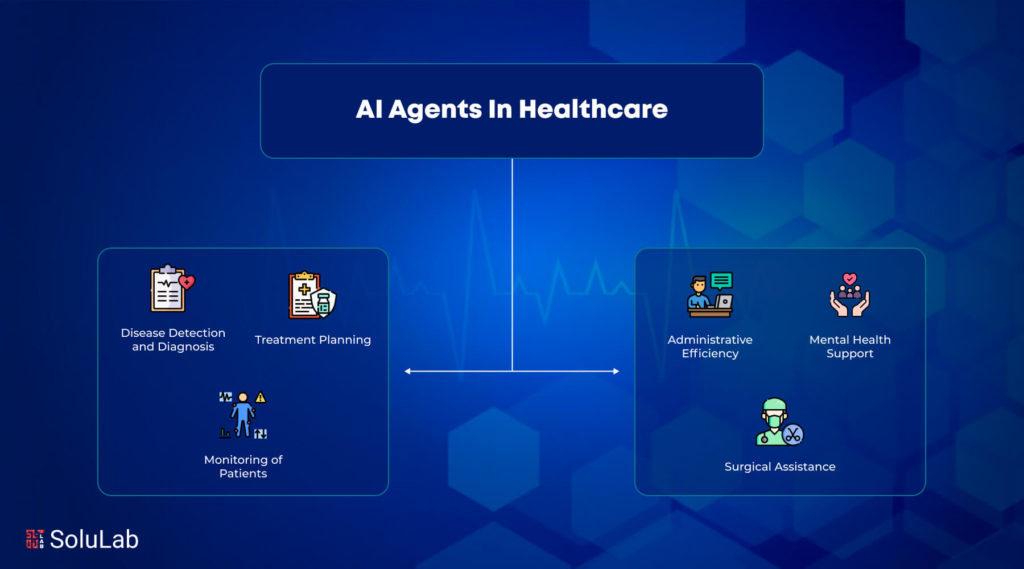Your Retirement Coverage Roadmap Starts With the Punta Gorda Medicare Agency
Your Retirement Coverage Roadmap Starts With the Punta Gorda Medicare Agency
Blog Article
Exactly How Insurance Works for Elders: Key Insights Into Medicare and Insurance Coverage Options
Comprehending insurance for senior citizens, specifically Medicare, is vital for efficient healthcare management. Medicare gives vital coverage, but its intricacies can be frustrating. Seniors should navigate different elements, such as Components A, B, and D, together with options like Medicare Benefit and Medigap plans. Each option impacts their financial duties and access to services. Unboxing these aspects discloses considerable understandings that can affect their healthcare decisions. What are the essential elements senior citizens should think about?
Recognizing Medicare: An Introduction

Medicare Components A and B: What They Cover
Medicare Parts A and B give essential protection for seniors, attending to both hospital and medical services. Part A concentrates on health center insurance, covering inpatient stays and certain outpatient services. Component B uses insurance coverage for a range of clinical services, including physician check outs and preventative treatment.
Health Center Insurance Policy Coverage
Just how do senior citizens browse the complexities of health center insurance policy protection? Medicare Component A provides necessary healthcare facility insurance, covering inpatient remains, experienced nursing facility treatment, hospice services, and some home health and wellness treatment. This protection is vital for senior citizens, as it assists handle the costs related to hospital stays and recovery.Medicare Component B, on the various other hand, enhances Component A by covering outpatient solutions, consisting of doctor check outs, precautionary treatment, and analysis examinations. With each other, these 2 components create a comprehensive safeguard for elders, guaranteeing they have access to needed medical treatment. Comprehending the differences between Components A and B permits elders to make enlightened decisions about their health care requirements and economic duties associated with healthcare facility solutions.
Medical Provider Coverage
While passing through the intricacies of medical solutions insurance coverage, elders gain from recognizing the certain offerings of Medicare Components A and B. Medicare Component A mostly covers inpatient medical facility remains, knowledgeable nursing facility care, hospice treatment, and some home healthcare solutions. In comparison, Medicare Part B concentrates on outpatient solutions, consisting of medical professional gos to, preventive treatment, diagnostic tests, and durable clinical tools. Furthermore, Component B covers particular mental health services and outpatient rehabilitation. Together, these components offer a complete framework for handling healthcare needs. Elders should familiarize themselves with the nuances of these protection options to guarantee they optimize their benefits and minimize out-of-pocket costs, eventually enhancing their access to crucial medical solutions.
Medicare Advantage Plans: An Alternate Approach
An expanding number of senior citizens are discovering Medicare Benefit Program as a viable alternative to typical Medicare. These strategies, additionally referred to as Medicare Component C, are used by private insurer and incorporate all benefits of Medicare Parts A and B, typically consisting of extra services such as vision, oral, and health care. Many senior citizens appreciate the streamlined method, as these plans usually provide a solitary plan that covers different health care needs.Medicare Advantage Plans can offer an affordable option, with some strategies also featuring reduced or no regular monthly costs. It is essential for senior citizens to evaluate the network of doctors and hospitals connected with each strategy, as well as any type of added out-of-pocket expenditures that might emerge. Inevitably, choosing a Medicare Advantage Plan calls for mindful consideration of specific health requirements and monetary circumstances, making certain seniors choose the choice that best suits their lifestyle and healthcare needs.
Prescription Drug Protection: Medicare Component D
Medicare Part D offers necessary prescription drug protection for senior citizens, aiding to take care of the expenses of needed medicines. Comprehending the enrollment duration is vital for recipients to optimize their benefits and prevent penalties. Additionally, cost considerations play a significant function in selecting the best plan to fit individual wellness demands and economic scenarios.
Coverage Fundamentals Explained
Prescription medicine protection is a vital component of health care for elders, making sure accessibility to essential medications. Medicare Part D uses a range of plans designed to help cover prescription medication expenses. These strategies are offered by private insurance coverage business accepted by Medicare and can differ have a peek at these guys extensively relative to costs, deductibles, and covered drugs. Recipients normally pay a month-to-month premium, together with copayments or coinsurance for each prescription. It is essential for elders to evaluate their options every year, as prices and formularies may transform. Some people may additionally receive Additional Aid, a program that aids with out-of-pocket expenses. Inevitably, recognizing these essentials allows elders to make educated choices about their prescription medication insurance coverage.
Enrollment Duration Information
Understanding the numerous enrollment periods for Medicare Component D is crucial for elders looking for to protect their prescription drug insurance coverage. The First Registration Period (IEP) lasts seven months, starting 3 months prior to a specific turns 65 and ending 3 months after. Throughout this moment, elders can enlist in a Component D plan without penalty. The Annual Enrollment Duration (AEP) runs from October 15 to December 7 yearly, enabling recipients to make changes to their existing plans or sign up in a new one. In addition, senior citizens may get a Special Enrollment Duration (SEP) as a result of specific conditions, such as moving or losing various other protection. Awareness of these timeframes is important for making sure appropriate prescription drug coverage.
Expense Considerations Overview
While steering with the complexities of medical care expenses, elders need to consider the financial elements of Medicare Part D, which supplies crucial prescription medication coverage. This program entails numerous expenses, consisting of regular monthly premiums, yearly deductibles, and copayments for medications. Costs can vary substantially based upon the chosen plan and revenue level. In addition, beneficiaries might experience a protection gap, commonly described as the "donut hole," where out-of-pocket costs enhance up until reaching a particular investing limit. Understanding these expense structures is important for seniors to efficiently handle their health care budget plans. It is suggested for elders to examine their prescription needs yearly, as medications and plan alternatives may transform, affecting total expenses and protection competence.
Medigap Policies: Supplementing Your Medicare Insurance Coverage

Medicaid: Added Assistance for Low-Income Seniors
For elders facing economic obstacles, Medicaid works as an essential safeguard, giving essential medical care coverage and support. This program, administered jointly by government and state governments, particularly targets low-income people, including the senior. Medicaid covers a broad series of solutions, such as hospital remains, physician visits, long-term treatment, and home health solutions, which are basic for maintaining wellness and wellness. Eligibility for Medicaid varies by state, commonly based upon revenue, assets, and certain medical demands. Many seniors might get approved for both Medicare and Medicaid, called twin eligibility, which can help cover prices that Medicare does not, such as deductibles and copayments. Furthermore, Medicaid might supply assistance with prescription medicine costs through programs developed for low-income beneficiaries. On the whole, Medicaid plays a substantial role in ensuring that low-income elders have accessibility to essential health care solutions, advertising better wellness end results and lifestyle.
Browsing the Registration Process: Trick Timelines and Tips
Just how can elders successfully browse the complex registration process for healthcare insurance coverage? Comprehending vital timelines is vital. The initial registration duration for Medicare begins three months before the private turns 65, prolongs through the month of their birthday celebration, and proceeds for three months after. Throughout this period, seniors can enroll in Medicare Part A and Component B without penalties.Additionally, the yearly open enrollment duration for Medicare Advantage and Component D runs from October 15 to December 7 each year, permitting adjustments in insurance coverage. Senior citizens are recommended to evaluate their existing health and wellness demands and evaluation strategy options during this time.To promote a smooth enrollment experience, making use of sources such as the Medicare web site or speaking to state medical insurance help programs can offer beneficial support. Keeping track of target dates and essential documents will certainly even more ensure that elders safeguard the most suitable insurance coverage for their health care needs.
Regularly Asked Concerns

Can I Maintain My Existing Physician With Medicare Coverage?
The concern of keeping a present doctor under Medicare insurance coverage commonly depends upon the details plan chosen. Many Medicare Advantage strategies may need making use of a network of providers, while Initial Medicare typically enables more comprehensive access to medical professionals.
What Happens if I Miss the Registration Period?
They might encounter postponed protection, higher premiums, or possible fines if an individual misses out on the enrollment period. This circumstance can lead to spaces article in healthcare accessibility, motivating the need for careful planning and awareness of due dates
Are Dental and Vision Solutions Covered by Medicare?
Dental and vision services are normally not covered by Medicare. However, some Medicare Advantage strategies may provide these advantages. Senior citizens need to discover their options to identify if additional insurance coverage is offered for these necessary services.
How Do I File a Grievance About My Medicare Strategy?
To submit a complaint regarding a Medicare plan, one must speak to Medicare straight at 1-800-MEDICARE or see their website. Reporting issues helps boost services and warranties that problems are resolved without delay.
Can I Change My Medicare Strategy After Enrollment?
Changing a Medicare plan after registration is possible during marked durations, such as the Yearly Registration Period or Special Registration Durations (Senior Insurance Agent). People must examine their choices carefully to guarantee they choose the ideal insurance coverage for their requirements
Final thought
In summary, understanding the details of Medicare and its different parts is important for elders seeking to maximize their healthcare insurance coverage. By checking out Medicare Components A and B, Advantage Plans, Component D for prescriptions, and Medigap plans, elders can make enlightened choices that reduce out-of-pocket expenditures. In addition, recognition of Medicaid options supplies additional support for low-income people. Guiding the enrollment procedure with key timelines warranties that elders can access the vital services they need for their wellness. The program is split into Original Medicare and Medicare Benefit, each offering distinct advantages and insurance coverage alternatives. While passing through the complexities of clinical services insurance coverage, seniors profit from comprehending the particular offerings of Medicare Components A and B. Medicare Part A largely covers inpatient medical facility keeps, knowledgeable nursing facility treatment, hospice care, and some home health care solutions. A growing number of senior citizens are discovering Medicare Benefit Plans as a practical option to standard Medicare. Several seniors may qualify for both Medicare and Medicaid, recognized as dual qualification, which can assist cover expenses that Medicare does not, such as copayments and deductibles. Throughout this duration, senior citizens can sign up in Medicare Part A and Part B without penalties.Additionally, the yearly open enrollment duration for Medicare Advantage and Part D runs from October 15 to December 7 each year, permitting modifications in insurance coverage.
Report this page